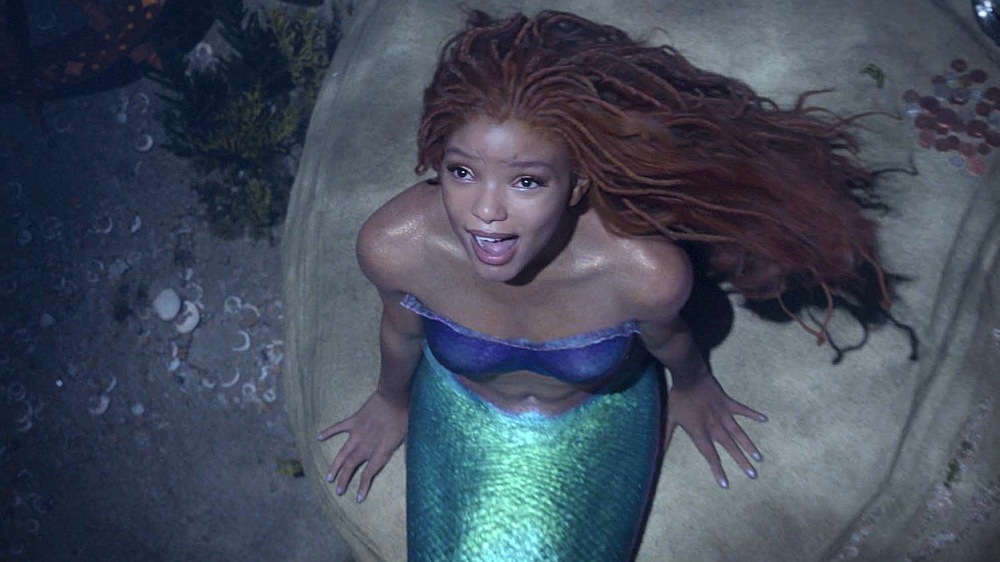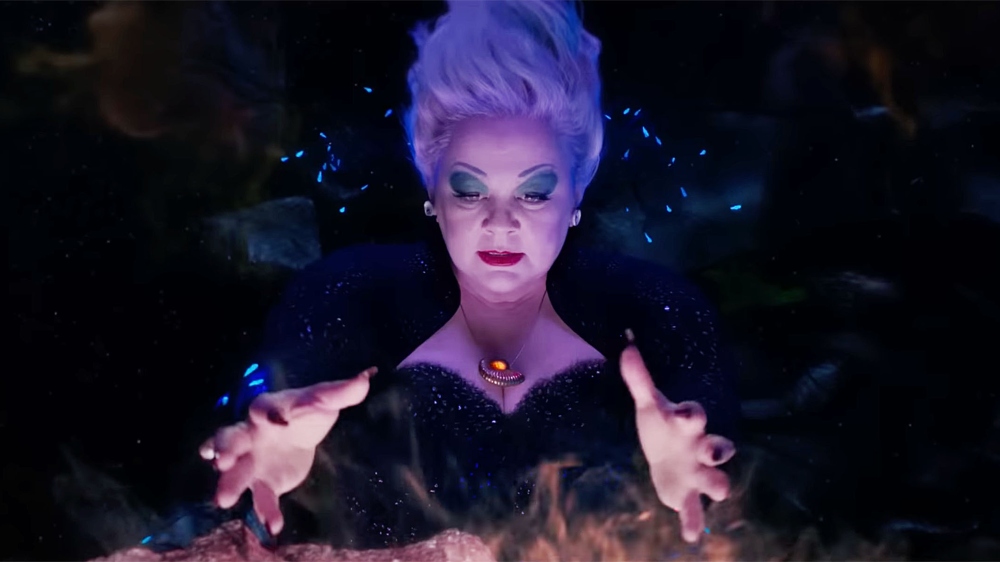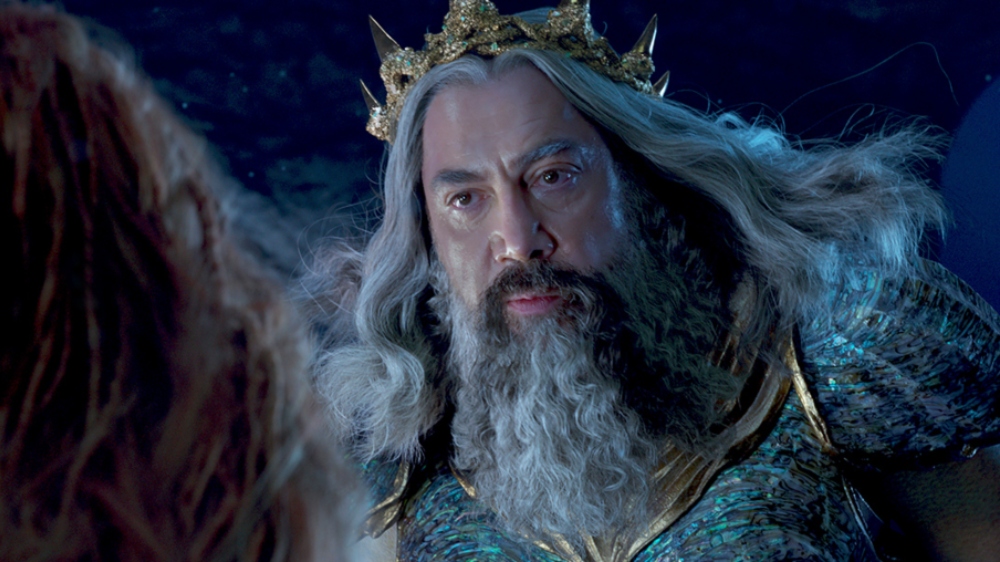
It is a tale as old as time that two star-crossed lovers from different walks of life must overcome familial opposition if they wish to be together. In Hans Christian Andersen‘s classic tale The Little Mermaid, those obstacles include the inherent separation between the human world and the fictional one of the merfolk, who are naturally suspicious of each other’s destructive prowess, leading to a devastating tragedy.
In Disney’s 1989 cartoon adaptation of that story, quirky anthropomorphic characters add childish levity and make the story more palatable for children. The studio’s latest version of The Little Mermaid, an effects-heavy live-action adaptation, preserves the core love story and the funny little animals while adding a touch of seriousness that is overall befitting of the beloved story.
Ariel (Halle Bailey) and Prince Eric (Jonah Hauer-King) need no introduction, but for the uninitiated, she is the youngest of King Triton’s (Javier Bardem) daughters — in this version, each represents one of the legendary Seven Seas in a kaleidoscope of racial inclusivity that is symbolic of the decade in which this movie was made. Instead of singing for their father, these strong women are liberated seafaring adventurers. But Ariel’s spirit of exploration goes too far for her prejudiced father’’ taste, and her obsession with the human world beyond the surface of the sea provides the main source of parent-teen angst in this movie.
Ariel is accompanied in her adventures by an anxious fish named Flounder (Jacob Tremblay), as well as guarded by her father’s loyal crab, Sebastian (Daveed Diggs), and (mis)guided by the absent-minded gannet, Scuttle (Awkwafina, who steals the movie). When her path crosses with that of the handsome prince, she foolishly turns to the treacherous sea witch Ursula (Melissa McCarthy) for help in becoming human and nabbing her man.

However, in this version, directed by Rob Marshall (Chicago) from a screenplay by David Magee (Life of Pi), Eric has a more robust story himself. Like Ariel, he, too, feels at odds with the world that surrounds him, held back by his overly anxious mother, Queen Selina (Noma Dumezweni), who wishes to forbid future human exploration of the oceans given the tragedies that therein befall mankind. Eric is adopted and inherently feels like he doesn’t quite fit in. It is a simple yet important addition, as it makes the eventual connection between the two characters feel more adult than most fairy tales.
One of the big advantages that this Little Mermaid has over the previous Disney version is that those human features permit a much stronger and more real evocation of feelings, and Bailey and Bardem, in particular, excel at conveying those moments of painful sentiments and separation that are at the emotional core of the story. McCarthy also plays the role of Urusula (here Triton’s estranged sister) exceedingly serious, but she shines enough in her one or two subtle moments of comedic brilliance to leave you wishing she hadn’t made the villainess quite so serious.
As in the 1989 animated version, most of the fun of this film comes from the supporting characters. Here, Awkwafina’s Scuttle arguably overtakes Sebastian as the most amusing character, and she is helped tremendously by the fact that the additional songs from Lin Manuel-Miranda (with additional music by original composer Alan Menken) include a highly entertaining rap from Scuttle titled “The Scuttlebutt” in place of one of Sebastian’s signature pieces (no, not that one). Awkwafina is given new jokes as well as the older punchlines that much of the audience will come in expecting, pulling off a balancing act that is challenging for all of Disney’s live-action adaptations of its animated classics (more on that in a moment).
This Little Mermaid is perhaps at its most shallow in some of the below-the-line departments. In particular, Wyatt Smith‘s editing of the musical numbers is visibly slower than that of the 1989 animated movie — an odd outcome considering Marshall’s Oscar-winning adaptation of Chicago perfected the art of musical editing. The strength of Andersen’s underlying source material and Menken’s beloved music is too inherently strong to even consider this movie a disappointment, though it is noticeably longer than its animated predecessor, as it takes a while to get into the story, and thus, the songs.

Fortunately, the visual effects are impressive in making the actors seem like they are actually underwater, though they aren’t as effective when it comes to the talking animals, unable to overcome the inherent difficulty in making such a thing convincing. Even the new gowns by award-winning Costume Designer Colleen Atwood seem to be mostly a rethread from the regal dresses and suits that adorned the original animated characters.
Much has been discussed, of course, of “changes” — structural, casting, and otherwise — to this version of The Little Mermaid. The whole point of storytelling since antiquity, though, has been that oral and written traditions are modified by subsequent generations to reflect their views and rivals. Though one can imagine the Greeks kicking up a Twitter storm when the Romans changed the identities of all their gods, it is impossible to fathom that these complaints would have dissuaded the new conquerors from putting their own gloss on old tales. Eventually, both versions may or may not prevail, but the right of new generations to reimagine stories is, also, as old as time. And nobody has to purchase a movie ticket to see a movie they don’t want to see.
But the new The Little Mermaid is a very good film, and not only are most of the modifications cosmetic but most were needed. The emotional centerpiece of the story — the difficult connection between Ariel and Eric — remains, while the reason the 1989 cartoon became so popular — the amusing little animals — is also preserved, though the spotlight has perhaps shifted a bit. As noted, the strength of the material — both of the story and the songs — is difficult to dislodge, so when you take all of that into account as well as the performances of the cast, which range from superb to merely good, plus its modern songs and fundamentally well-intentioned sincerity, it’s clear that The Little Mermaid remains destined to live among humans as the classic it’s always been.
Grade: B+
The Little Mermaid will be released by Disney in theaters across the globe on Friday, May 26.





